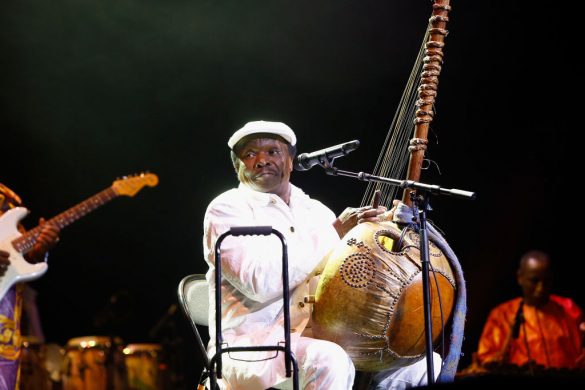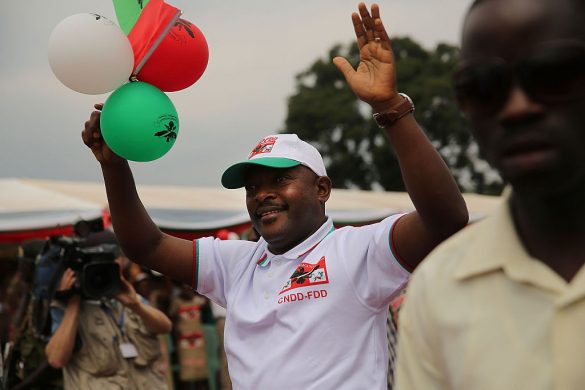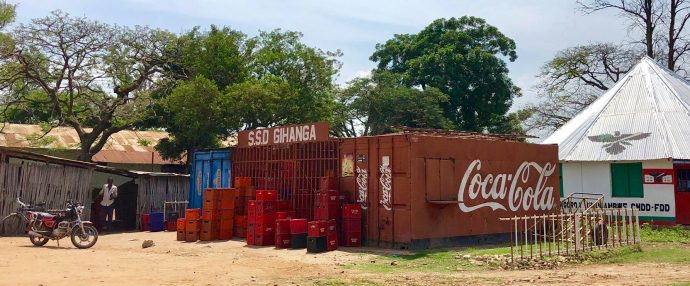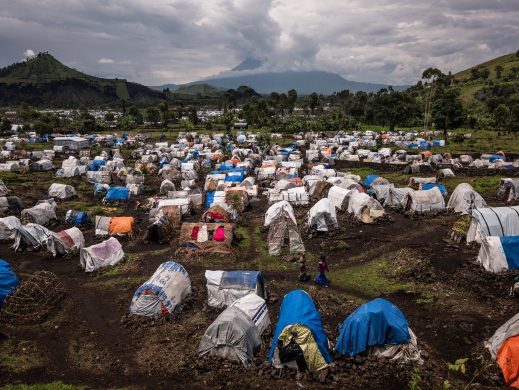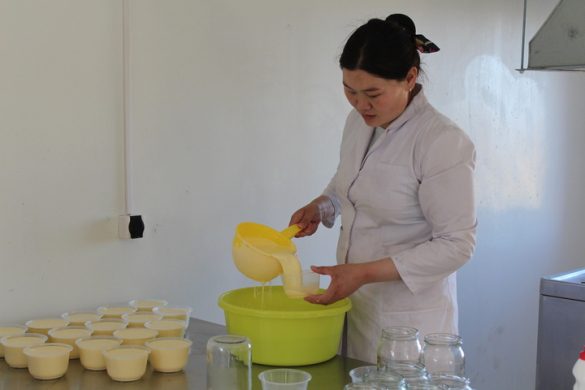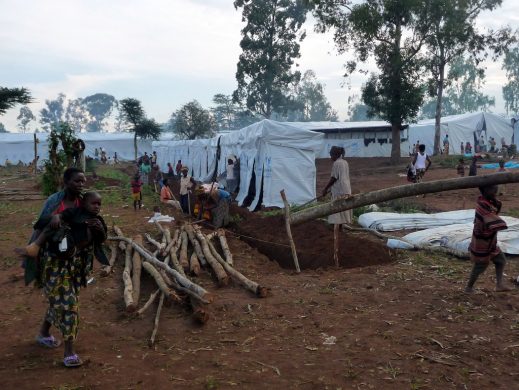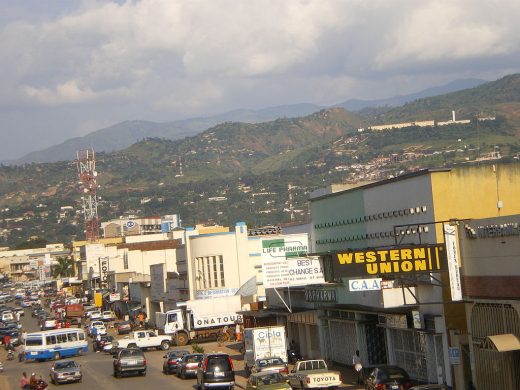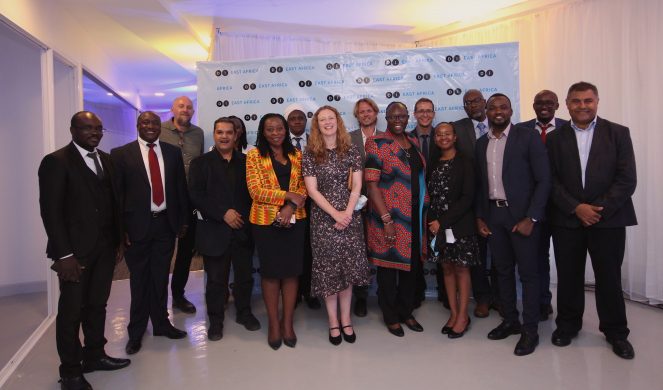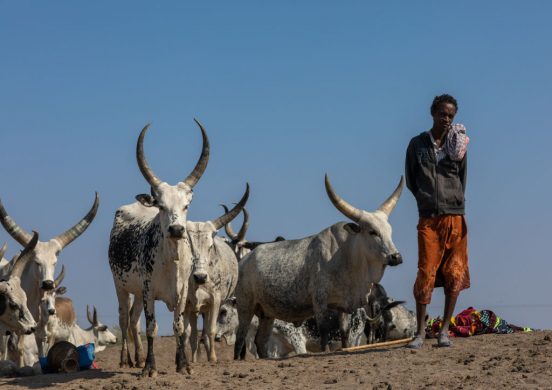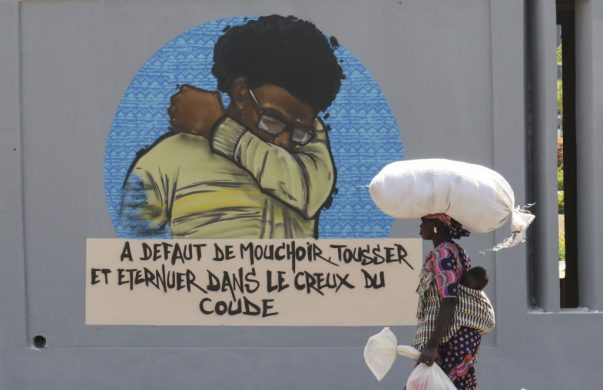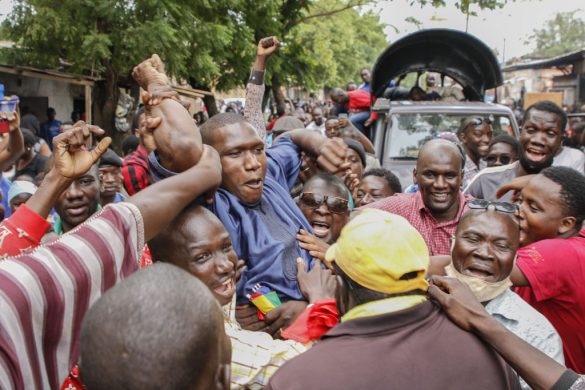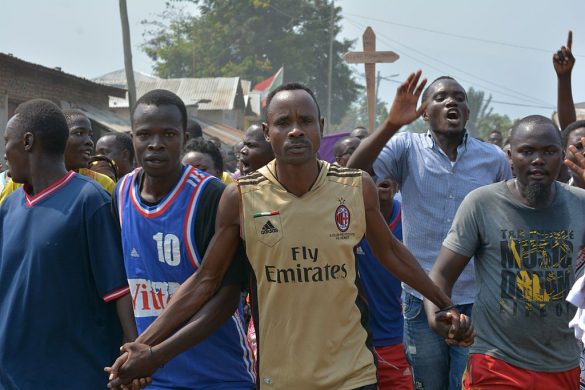Konflikten i Burundi

I april 2015 annoncerede præsident Pierre Nkurunziza, at han ville stille op til en tredje embedsperiode. Det til trods for, at landets grundlov foreskriver, at en præsident kan sidde maksimalt to perioder.
Præsidenten argumenterede med, at grundloven var trådt i kraft efter at han var blevet valgt første gang og at han derfor faktisk kun havde tjent én periode som præsident under den nuværende grundlov. Det gav en domstol ham ret i.
Præsidentens beslutning førte til omfatttende protester, der blevet slået hårdt ned af sikkerhedsstyrkerne.
I juli blev der afhold valg og Pierre Nkurunziza vandt. Både FN, den Afrikansk Union, EU og USA har sagt, at valget ikke var frit og fair.
Urolighederne har tvunget tusinder på flugt til bl.a. Tanzania, Rwanda, Zambia, Uganda og DR Congo.
GENEVA, 18 April, 2016 (OHCHR): The UN High Commissioner for Human Rights Zeid Ra’ad Al Hussein warned Monday of “a sharp increase in the use of torture and ill-treatment in Burundi” and voiced concerns about worrying reports of the existence of illegal detention facilities, both in Bujumbura and in the countryside.
“Since the beginning of the year, my team has recorded at least 345 new cases of torture and ill-treatment. These shocking figures are a clear indicator of the widespread and growing use of torture and ill-treatment by government security forces,” said Zeid. In all, some 595 people have been ill-treated or tortured since April 2015, a figure which is likely to be an under-estimate.
Ingen konsekvenser for torturbødler
“Torture and ill-treatment mainly take place at the time of arrest, upon arrival or during detention, especially in facilities run by the Service national de renseignements (SNR), the police and, to a lesser extent, the army. Perpetrators of torture and ill-treatment have so far enjoyed total impunity,” the High Commissioner said.
“Many detainees visited by our team in the past few weeks had fresh wounds on their bodies. Some were unable to walk without assistance after being beaten with belts, iron rods or sharp objects, or burned. I am profoundly disturbed by these terrible accounts and I urge the Burundian Government, in the strongest terms possible, to put an immediate end to these unacceptable and illegal practices,” said Zeid.
Nægtes lægehjælp efter tortur
Most of the tortured and ill-treated detainees say they were denied medical treatment. Some said intelligence services hid them in the toilets for days so their torture wounds could heal before they were returned to cells holding other prisoners.
During a visit by a UN human rights team to SNR facilities in Bujumbura last week, 30 of the 67 people held there displayed physical signs of torture. Many irregularities were identified during the visit, including the fact that 25 of the detainees had been kept in custody beyond the prescribed maximum time limit. In addition, while all detainees had been arrested for what were reportedly minor offences, the accusations entered against many of them in the SNR registry were for much more serious criminal offences, including undermining State security, illegal possession of arms and espionage.
Several cases of ill-treatment and torture have also been reported at police stations, especially in those located in the two Bujumbura neighbourhoods of Citiboke and Musaga, and at the Mutakura military camp.
Bunder og smidt i vandet
The High Commissioner noted that the use of torture and ill-treatment was also widespread in the countryside, noting a case of two men who said they were arrested by SNR agents in Nkamba province at the end of March. They said they were seriously beaten and repeatedly dropped in Lake Tanganyika with their hands tied on several occasions in order to force them to confess to crimes.
“I recognize the efforts made by the Government in releasing at least 45 demonstrators following the Secretary-General’s visit. However, in addition to the reports of torture and ill-treatment in official detention facilities, I am deeply concerned about information emerging about the existence of secret detention facilities across the country,” the High Commissioner said.
A man who was arrested at the end of March by unidentified armed individuals stated that he was taken blindfolded to an unfinished building in an unknown location, where nine other people were also being held.
The victim reported witnessing the execution of two fellow detainees before he managed to escape. Reports have also been received of another illegal detention facility, allegedly set up by the police with the support of the Imbonerakure militia, in the city of Ngozi, in the northern part of the country.
Soldater og politifolk tortureres også
The High Commissioner said he had also received “persistent reports of arrest, detention, torture, ill-treatment, enforced disappearances and assassination of certain members of the police and military by other government forces.”
Members and officers of the former Burundian Armed Forces – known as ex-FAB and which was predominantly Tutsi – appear to have been particularly targeted, including some retired soldiers.
Many soldiers interviewed by the UN Human Rights Office while in detention said that the torture or ill-treatment they endured was aimed at forcing them to confess their support for rebel groups or to provide names of other people suspected of supporting them.
Some soldiers detained at the SNR facilities claimed to have witnessed the killing of a number of their colleagues. On 10 April 2016, the body of an ex-FAB soldier, who had been arrested the previous day by the police, was found in Gesenyi, near Citiboke. At least five soldiers have also been reported missing following their arrest by police or military forces over the last few weeks.
Zeid also deplored the increase in attacks by unidentified armed men, reportedly linked to rebel groups. At least 30 attacks in Bujumbura and in several provinces took place in March, killing one civilian and four soldiers. Around five civilians were also reportedly killed during a rebel attack near the Tanzanian border on 11 April.
The High Commissioner also condemned the targeting of members of the ruling party, the CNDD-FDD, including the assassination of a local official and member of the CNDD-FDD who was shot at his home by unidentified armed men on 13 April in the town of Kajaga, in Bujumbura Mairie province.



